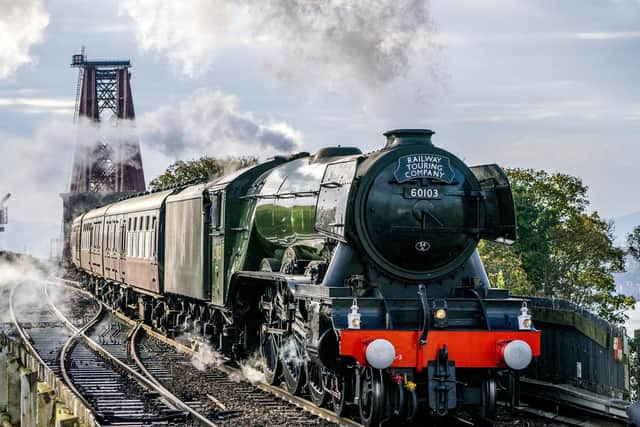Train travel in Scotland appears to have been stuck in the slow lane for decades – Stephen Jardine
I can still remember my first rail adventure. When my big brother wasn’t at home, I’d play with his train set, imagining the passengers were heading for exotic destinations rather than another circuit of the oval track in the attic. As a teenager I moved things up a gear, buying an Interrail ticket and travelling around Europe.
From the super-efficient trains of Switzerland to the gourmet buffet cars of Italy, this was the age of the train. Then I came home and things were different. As a student, I was a regular traveller on the British Rail service from Lockerbie to Edinburgh. It was a high-risk adventure.
Advertisement
Hide AdAdvertisement
Hide AdYou were never sure when a train might arrive and when you did get onboard, you had to keep your wits about you. The train stopped in the shadow of Carstairs State Hospital and split into two sections. One headed to Edinburgh, the other to Glasgow. Staff seemed to get inordinate pleasure from making sure you were in the wrong carriage. UK rail travel was an adventure but for all the wrong reasons.


Japan’s trains more than three times faster
This week I was back on the train for the first time in ages and what struck me was how little has changed. When the service for Inverness arrived, it was missing some carriages and had no catering trolley until Perth. At Pitlochry, we were held for 15 minutes meaning some passengers missed connections when they eventually reached Inverness. So inconvenient and yet so familiar.
From Edinburgh you can get by train to Newcastle faster than you can get to Perth, despite that being a third of the distance. Old timetables show the 8.40am Edinburgh-Inverness service took three hours 17 minutes in 2002. More than two decades on, the same train on Monday morning will take three hours 23 minutes.
In Japan, a train from Tokyo to the city of Shizuoka will cover roughly the same distance in 58 minutes at a cost of £47. On paper, it’s unreasonable to compare train travel in densely populated urban Japan with service levels in rural Scotland but it is fair to say other countries see progress in transport that we can only dream about.
Depopulation is a huge issue in the Highlands and Islands. Skye, Lochaber and Badenoch MSP Kate Forbes has called it "a national emergency”. Housing, shortages, lack of job opportunities and transport infrastructure problems all contribute to people deciding it is easier to make lives elsewhere. Road improvements seem to take forever but improvements to train timetables should be simple and achievable, if the will is there.
And it’s not just in the north, the flagship Edinburgh Waverley to Glasgow Queen Street takes around 45 minutes. Half a century ago, British Rail had a 43-minute service on the same route. In a world where the speed of progress and change gets faster and faster, train travel seems to be stuck in the slow lane. The staff are brilliant and doing their best in the circumstances but what’s needed is some ambition and leadership.
According to its website, the priorities for ScotRail moving forward are improving safety, health and well-being, taking sustainability seriously, pushing for equality and delivering inclusive economic growth. They are all admirable targets but going a bit faster would also be a good idea.
Comments
Want to join the conversation? Please or to comment on this article.